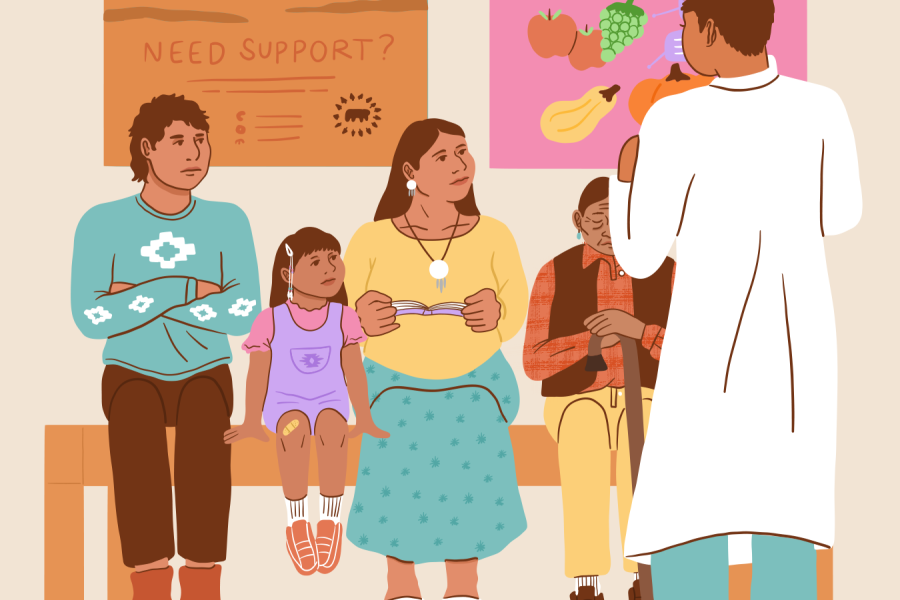Before I became interested in public health, I assisted with more than 100 autopsies at the University of Iowa Hospitals and Clinics Department of Pathology Decedent Care Center. In the autopsy room, I was captivated by the intricacy of human anatomy and the science behind various causes of death. However, my father was opposed to me handling dead bodies—a taboo within his deep-rooted Navajo beliefs. He worried I'd be haunted by spirits and urged me to cleanse myself with sage after each case to avoid them. Despite my attempts to explain the significance of autopsy work, he pressed me to quit. On the other hand, my mother, a Yaqui woman, was more accepting but still grossed out by my job. While she understood I had career aspirations in forensic pathology, she joined my father in opposing my choice.
Unfazed by their disapproval, I continued assisting with autopsies for over two years. However, nightmares and unsettling dreams began to plague me, leading me to turn to my cultures for prayer and guidance. Family members looked at me as if to say, I told you so. Acknowledging my family's warnings, I decided to pivot to public health.
I chose to attend the Bloomberg School of Public Health, an institution that not only aligns with my career aspirations but houses the Center for Indigenous Health, which does commendable work addressing public health challenges in Indigenous communities. Public health resonates with me deeply, especially considering my upbringing on Navajo and Yaqui reservations in Arizona, where accessibility to health care was problematic for my family and other American Indians. It's an ongoing problem: The Navajo Nation had the third-highest per capita rate of COVID-19 in the country, and American Indians are at high risk for serious complications due to their increased rates of heart disease, diabetes, and other conditions. Compounding these issues is the fact that Congress consistently underfunds the Indian Health Service, forcing hospitals to limit services offered. As I embark on a new chapter at the National Indian Health Board in Washington, D.C., I aspire to address these disparities.
My journey from autopsies to public health is a testament to the balance between cultural traditions and career aspirations. The clash with my family's beliefs became a catalyst for self-discovery, ultimately setting me on a path where I could improve health outcomes in communities that feel like home.
Posted in Alumni
Tagged school of public health








